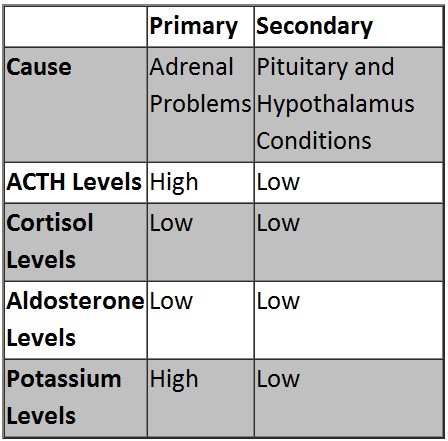Addison's Disease can be diagnosed with the following methods:
- Blood tests --> Allows a review of blood content
- Physical examination --> Look out for physical symptoms such as hyperpigmentation
- Measure hormone levels in blood and urine after the patient is given ACTH --> ACTH is a hormone which when activated in the brain causes the adrenal gland to produce more cortisol. Measuring ACTH can help to diagnose if the Addison's disease is caused by a malfunction in the brain or the adrenal glands. Scans such as X-rays and CT scans can also be used to pinpoint the cause of he disease.
K Hayat(31 August 2012), blood-test, retrieved 18th July 2014 from <http://medimoon.com/2012/08/blood-test-may-tell-you-when-you-will-experience-menopause/>
While Addison's disease cannot be prevented, it is not incurable and with proper treatment patients can still live normal lives. Addison's disease is a disease of hormonal deficiency, hence one of the most straightforward ways to treat the disease is simply getting patients to consume the hormones as a form of medication. This can be done by the consumption of pills containing hydrocortisone to treat cortisol deficiency or pills containing fludrocortisone acetate, a type of steroid hormone(special type of hormone), to treat aldosterone deficiency. The doses are increased in times of stress and illness/injury. Taking in these hormones helps to make up for the patient's lack of these hormones, so that the body's normal regulatory and metabolic process can carry on as normal. These medications must be taken on time and the doses must not be missed, for this will mean that the patient will once again lack cortisol/aldosterone and suffer from the effects of Addison's disease. Patients should also monitor their health to ensure they get sufficient doses of medication and that the disease's effects on them are minimal.
Future treatment methods of Addison's disease include involving 'physiological' time replacement therapy, hormone replacement therapy and the utility of adding adrenal androgens which are important for libido, mental capacity, muscle strength and bone density for female patients, which give females a better form of treatment.
For a patient suffering from an Addisonian crisis, doctor-prescribed injections of salt, fluids and glucocorticoids may be given as immediate treatment.
Whitney(20 November 2012), Fludrocortisone, retrieved 18th July 2014 from <http://s2.hubimg.com/u/1242809_f260.jpg>
Medscape(2001), Addison's Disease: Diagnosis Can Be More Difficult Than Treatment, 2001:17(8), retrieved 18th July 2014 from <http://www.medscape.com/viewarticle/406491>
David. T Derrer, MD (29 March 2014) Understanding Addison's Disease -- Diagnosis & Treatment, retrieved 18th July 2014 from <http://www.webmd.com/a-to-z-guides/understanding-addisons-disease-basics>
K Lynette( 30 January 2013), Patient Information: Adrenal Insufficiency(Addison's disease)(Beyond the Basics), retrieved 16th July from <http://www.uptodate.com/contents/adrenal-insufficiency-addisons-disease-beyond-the-basics>










